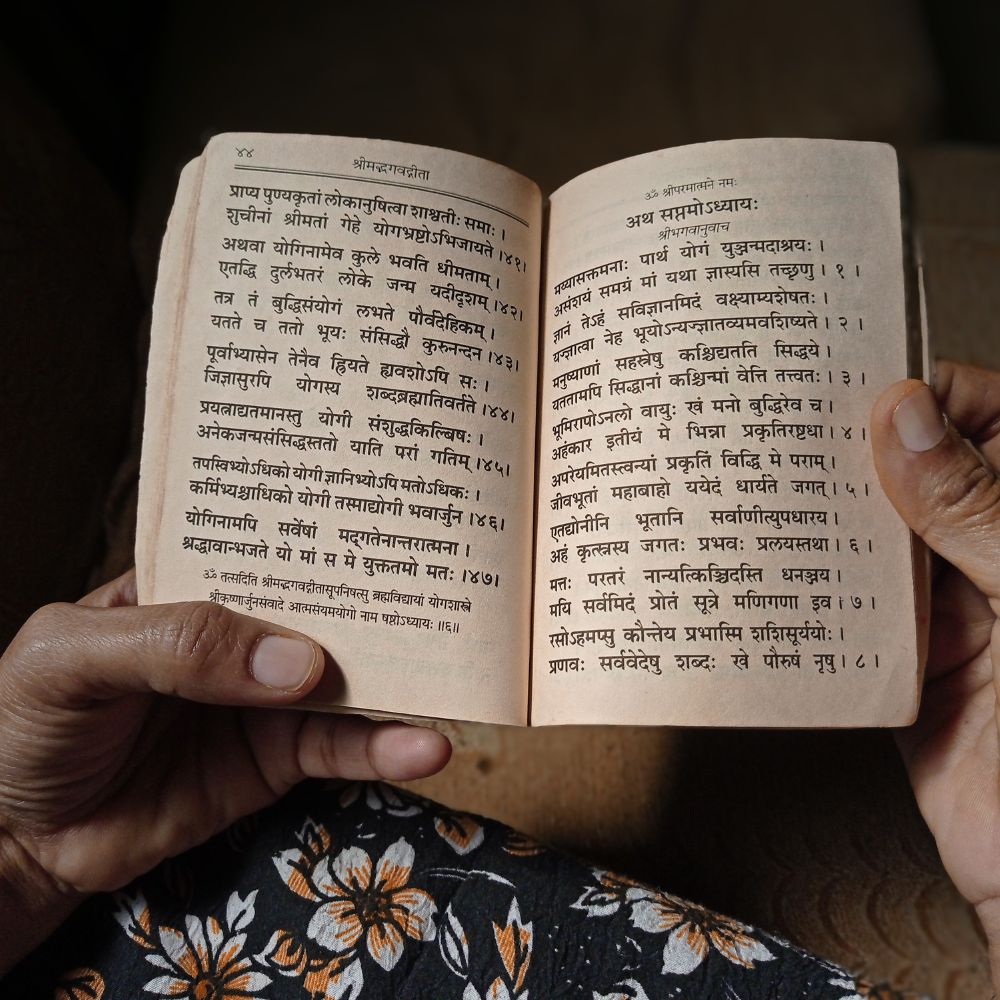A Compelling Case for Hindu Studies
Published by
Ms. Binni Rana
on
From the first time I saw the course listed on the Hindu University of America (“HUA”) website, I was intrigued. What did “Orientation to Hindu Studies” mean? Was it a fancy way of referring to Hindu Religion? Ranging from quantum mechanics and astronomy, surgery, and Ayurveda, to philosophy and theology, “Hindu Studies” more aptly describes the highly evolved and extensive knowledge system that was thriving prior to the systematic efforts by colonizers to destroy, misrepresent and plagiarize Hindu thought. After many hundreds of years of institutionalized colonialism, I believe establishing Hindu Studies in an academic environment is important in order to amass the weight of academic research to challenge with rigor, the entrenched biases and decolonize current academia.
.jpg?width=879&height=879&name=Chanakyas%20Principles%20of%20Leadership%20(2).jpg)
We learned early in the course about Insider vs. Outsider perspectives. Outsider-led orientalism and Indology were designed to support the colonial agenda painting Indians as the other and portraying the colonizers as somehow better in order to justify subjugating and exploiting the Indians. Over hundreds of years, Orientalism and Indology have become entrenched in academia, and only through a methodical and relentless academic process can the established “truths” be proven false.
Insiders have a right to take control of our own narrative and not be silenced. The Macaulayan Indian was a purposeful creation who looked Indian but thought and acted in English. Not only was this class of people employed to do the middle management tasks for the British Raj administration but they were also trained to look down on all things Indian as passé. For their subservient and loyal behavior, these Indians were rewarded. They permeated throughout Indian society at influential levels. Today, any attempt by insiders to tell our pre-colonized stories is treated as a threat and accusations fly without any attempt of debate. Having the insider voice in academia is critical to, at minimum, academic integrity, and, at best, the decolonization of Indian minds.
In 1835 Thomas Macaulay was instrumental in abolishing the Indian Sanskrit education system and replacing it with an English system. Thus began the most impactful disintegration of Hindu thought. There are over 30 million Sanskrit manuscripts with only a small fraction translated into English. As fewer people speak Sanskrit, we risk losing more and more knowledge. A revival of Sanskrit language is needed in academia not just for the study of Hindu thought in itself, but also for the benefit of all disciplines in the form of integrated studies.
Already a small fraction of the 30 million manuscripts in Hindu Studies has contributed to the progress of the world scientifically and spiritually. Imagine what potential lies hidden in the vast treasure trove of knowledge yet to be translated, that could benefit humanity.
For a revival of Hindu Studies, it needs to attract a younger generation who have been brought up in the Westernized form of institutionalized academia. Hindu Studies need to be an option available to young students. It could form part of a liberal arts program leading to a variety of specializations.
It also has a place in academia for people like me, those preparing for or already in their retirement years. Growing up in Canada, I represent a common profile. In my teenage and young adult years, I paid little attention to my parents’ traditions, and ashamedly, sometimes even dismissed or mocked them. But some of the little knowledge acquired passively was to be an anchor later in life. Further interest in history led to understanding the impacts of colonization and accelerated the desire, subconsciously, to learn about my culture. Naturally, I looked for universities to continue my studies in Hinduism. Luckily, I found HUA. I believe there are people like me who grew up in the West and who will come back to explore and reclaim our heritage. It will be important to present an alternative to Indology and South Asian Studies programs, which do not feel authentic to the Insider.
In spite of over 500 years of occupation, Hindu culture, albeit injured, still survives. For tens of thousands of years, our ancestors systematically passed down knowledge for the benefit of future generations. It is our duty. We owe them every effort to re-establish, reveal, preserve, and protect our rich legacy. One effective way, I believe, is through establishing formal education in academia combined with innovation in education, such as Sanskrit immersion schools prior to higher education and later education through various multimedia and online platforms. Further, there needs to be financial security and recognition to incentivize people to pursue these subjects in their earlier years. These could be in the form of scholarships, chairs of programs, and award recognitions.
Recently in Canada, there has been much attention on the Truth and Reconciliation Commission as it relates to the Indigenous Nations and the colonizing Canadian residential school system. Vikram Sampath raised a similar idea for India at the India Today Conclave; that is, the need for a Truth and Reconciliation process to face the impacts of colonization and occupation in order to move forward. The damaging outcome of the many ‘truths', rather falsehoods, propagated for years has been twofold: the perception of ethnic and cultural inferiority among Indians and second, the persistence of transgenerational trauma due to unresolved and unacknowledged grief. Hindu Studies belong and need to be in academia to support and augment the larger cause of decolonial studies as well as to enable India and Hindus to thrive authentically. For Hindus, this is a civilizational issue and I hope that more people will rise up to this endeavor.
Tags:
Insider perspective,
Post-colonization,
American Academy of Religion,
Hindu Studies,
Misrepresentation and stereotypes,
Challenging paradigms,
South Asian Studies,
Academic narratives,
Studying religion,
Hindu Americans,
Academic methods,
Diaspora,
Decolonization,
Diversity,
Globalization,
Hindu Philosophy,
History,
Historiography,
Sanatana Dharma,
Society,
History and Methods,
Hindu Canadians,
Biases,
Linguistics,
Hindu Texts,
Sanskrit,
Indigenous Languages,
Native Languages,
Indian,
Cultural erasure,
Social justice,
Indian education



